Our work
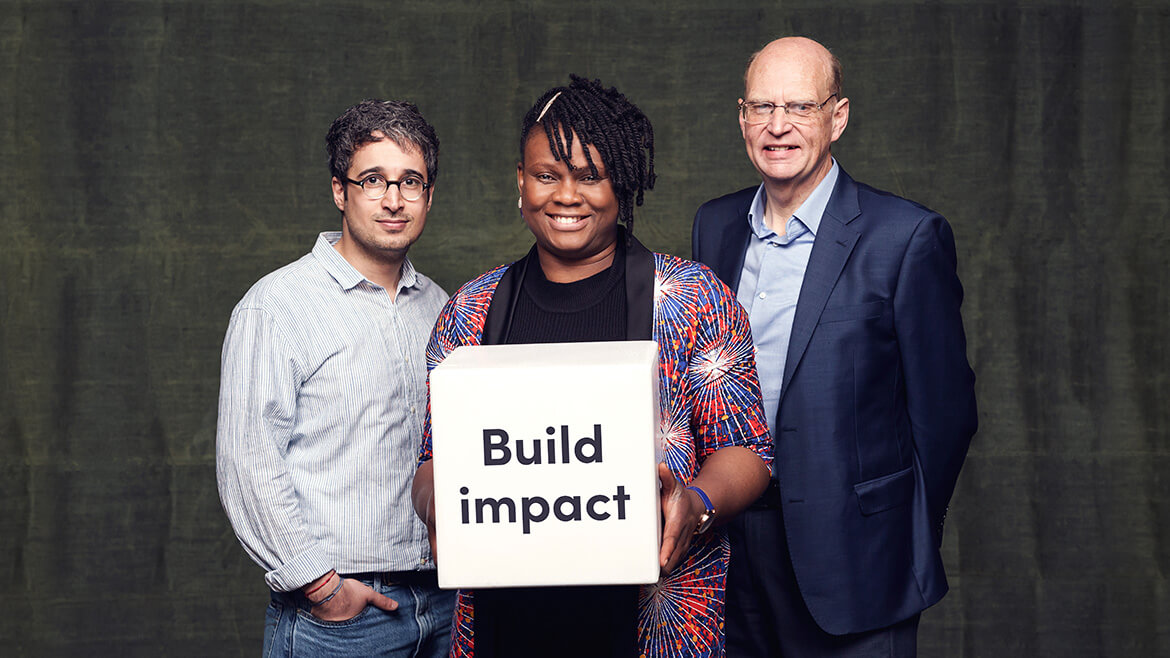
Explore our work
At Warwick we’re carrying out a huge breadth of research that drives forward our understanding of fundamental science and has real-world impact. And we’re applying that understanding through innovative courses, as well as collaboration and engagement with industry and the wider public.
As our vision develops, we’re focusing on five key areas to point the way ahead: Advanced Materials and Systems; AI, Digital and Smart Applications; Energy, Environment and Sustainability; Frontier Science; and Health and Medical Technologies.
Explore some of our case studies below to find out more about our current work and impact.
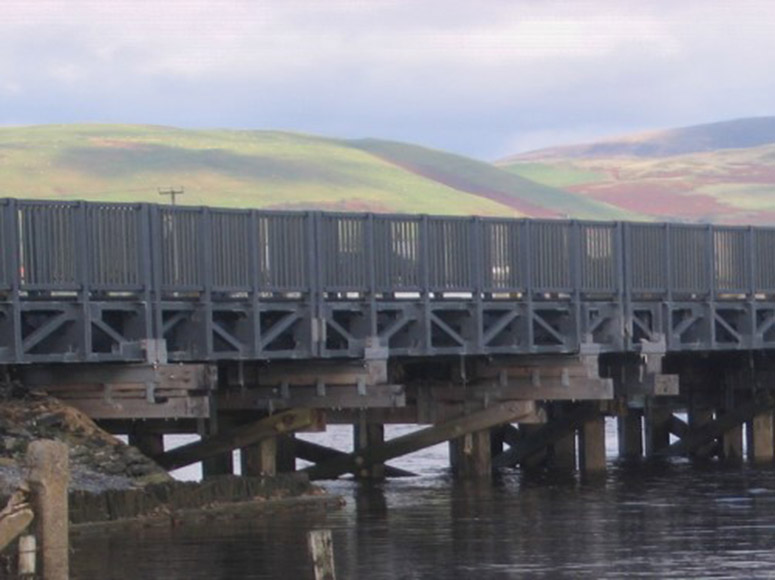
Transforming construction using fibre-polymer composites
Fibre-polymer composites are strong, lightweight structural materials made of a resin matrix, reinforced with glass, aramid, basalt or carbon fibres.
Professor Toby Mottram from Warwick’s School of Engineering has used his expertise as a structural engineer to develop fibre-polymer composites standards in the EU and US. The end goal is to increase confidence in fibre-polymer composites construction.
This research is already transforming the way fibre-polymer composites structures are designed and executed.

Developing sustainable chemicals to reach carbon neutral targets
Research teams at the Universities of Warwick and Nottingham have been awarded funding from the EPSRC to work with Lubrizol, a UK based global leader in the speciality chemicals industry.
They aim to create cleaner and greener chemical processing methods for everyday products to help the government meet its carbon neutral targets. The programme of research is designed to develop sustainable ways to make additives.

Norton Motorcycle supports Warwick students’ engineering experience
The Norton Motorcycle Co Ltd. has supported students at Warwick’s WMG, to develop a TT capable electric racing motorcycle, named ‘Frontier’.
Norton Motorcycles donated a sports bike frame to the students taking part. This has been adapted by the students and fitted with an electric powertrain, with batteries and control systems designed in-house.
The project allowed students to learn from experienced engineers to enhance their development in this field.
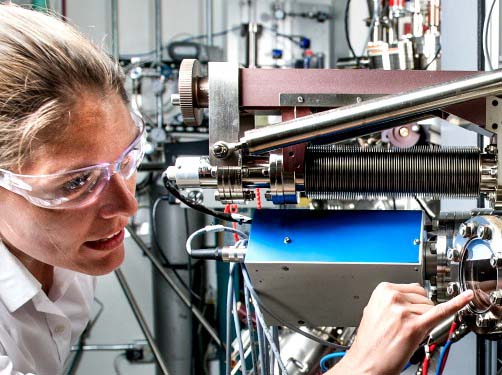
Changing assumptions in STEM subjects
Women are still underrepresented in science disciplines. That’s why researchers in our Department of Physics have created a variety of educational outreach activities and initiatives to encourage younger generations, particularly young women, to engage with STEM disciplines.
They aim to challenge established assumptions of who should be scientists. The XmaS Scientist experience gave female students across the UK the opportunity to explore, experiment and interact with researchers in physics. It has seen 70% of those who have taken part pursue STEM degree programmes.

Creating a sustainable and secure food system
Waitrose and their suppliers are working with Warwick to ensure future global food security.
The project offers PhD students a combination of academic development and industry training in agriculture and sustainable crop production, as part of a £18.9M Collaborative Training Partnership (CTP) award.
This gives PhD students the chance to effect change with their knowledge, and enhance resilience and sustainability in our food supply chains.
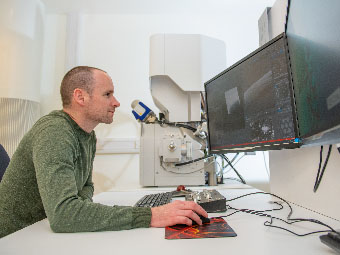
Electron microscopy expertise supports manufacturer
Warwick’s Electron Microscopy Research Technology Platform (EM RTP) has proudly supported carbide bur manufacturer Prima Dental’s research and development team for the past 3 years.
EM RTP has one of the best suites of microscopes in the UK and its three dedicated technical staff, Steve York, Steve Hindmarsh and Yisong Han, have won national awards for their skills and support.
Working with Warwick has enabled Prima Dental to ensure specifications are met, and instilled confidence among their clients of a quality product.

A model to inform the response to COVID-19
Mathematical modellers from Warwick’s Zeeman Institute, were responsible for providing scientific input into government policy throughout the COVID-19 pandemic.
The mathematical modellers developed an age-structured, regional scale compartmental model to inform policymakers on disease transmission.
Overall, Warwick’s model, alongside seven other universities, informed policy, allowing relaxed restrictions and the introduction of support bubbles in the first lockdown.

The future of mobility systems
Mobility systems are rapidly evolving. To embrace this evolution, in 2019, the School of Engineering and WMG established The Centre for Doctoral Training to Advance the Deployment of Future Mobility Technologies (CDT FMT), with an initial cohort of students across two streams.
Its aim is to develop multidisciplinary future research leaders with the creativity, skills and in-depth knowledge to transform the mobility of people and goods.
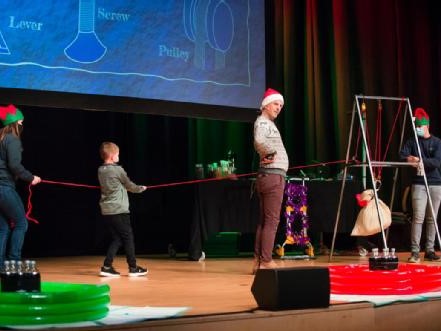
10 years of family fun with Warwick Christmas Lectures
For the past 10 years staff and students from across the Faculty of Science, Engineering and Medicine have come together each Christmas time to deliver an exciting series of lectures to members of our local and regional communities.
The lectures are all about exciting and inspiring the next generation with the wonders of science, and with lectures covering topics from the secret life of chocolate to junk in space and how Christmas Elves are the most dedicated engineers of all time it’s safe to say 2021 was no exception.
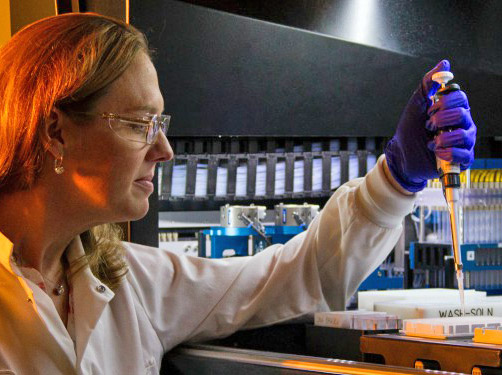
SMARTchip identifies strokes faster
Professor Nicholas Dale from Warwick’s School of Life Sciences has worked with Sarissa Biomedical Ltd to develop an early stroke detection device called the SMARTchip. This device can measure one of the key indicators of stroke – purines – in the blood. This means a stroke can be identified faster and more accurately, whilst using fewer resources.
The NHS is already trialling Professor Dale’s SMARTchip. Over 100,000 people in England are affected by strokes each year. With his research and innovation, patients across Europe will receive a faster diagnosis and better care.

Computer Programming and Embroidery for Coventry City of Culture
'Stitch In Time' is a collaborative project between Warwick Manufacturing Group (WMG) and local primary schools for Coventry UK City of Culture 2021. Led by Professor Margaret Low and taking inspiration from Coventry’s textiles history, children in years 5 and 6 can learn to create embroidery designs by writing computer programs.
As well as supporting teachers to deliver the project and students to learn and apply programming and mathematics skills, pupils who take part will also have the opportunity to have their work exhibited as part of a City of Culture exhibition on campus this year (TBC).

Making the materials and manufacturing industry more sustainable
The materials and manufacturing industry is currently facing a number of research-driven challenges in trying to achieve economic and environmental sustainability. To help address these challenges we, along with partners and the EPSRC, have established a Centre for Doctoral Training in Sustainable Materials and Manufacturing.
Those studying the Centre’s EngD International qualification will work with a partner company on a real-life challenge they are facing, helping to both find solutions and equip the next generation of ‘Research Engineers’ with essential, practical skills for the future.
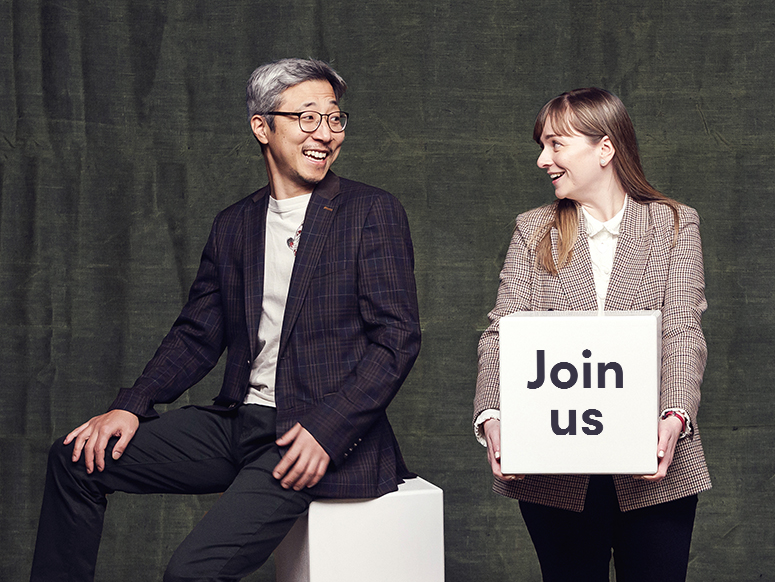
Help us build a better future
We have an exciting programme of work ahead to help us bring together, inspire and nurture the next generation of problem solvers, inventors and innovators in STEM. Watch this space for news and updates about all the ways you can get involved.
